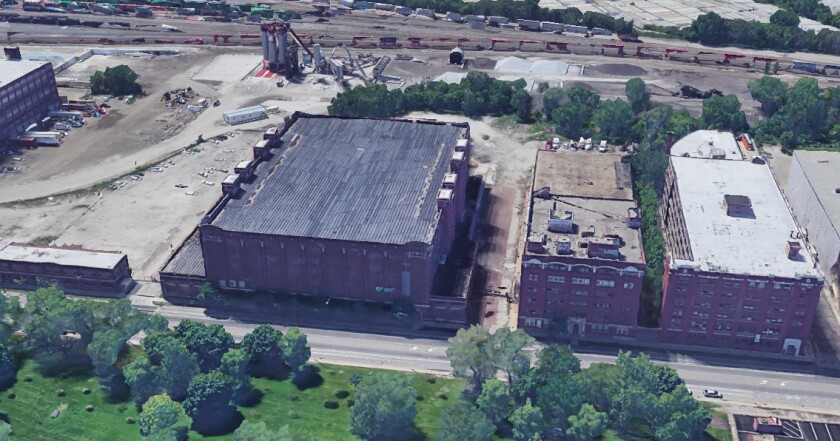Mayor Lori Lightfoot’s administration is denying funding for an affordable housing project in McKinley Park, citing the proximity of an asphalt plant that neighbors have been trying to shut down for two years.
Developers say they worked with the city for roughly the same period of time on a proposed $40 million plan to convert a building in the historic Central Manufacturing District on Pershing Road to 120 affordable apartments. Developers received an email in July from the city’s Department of Housing stating it “has outstanding concerns about the location of the development in relation to the asphalt plant.” Chicago Housing Commissioner Marisa Novara told developers in a Zoom call last week she would not help fund the almost $8 million of the project.
What puzzles Hipolito “Paul” Roldan, CEO of Hispanic Housing Development Corp., is that the city was aware of the nearby MAT Asphalt plant, which opened in the spring of 2018 across from the neighborhood’s namesake park, but only recently raised it as a reason not to support the project. Roldan and his development partners provided an environmental consultant’s memo to the city earlier this year saying the plant isn’t a threat to human health.
The housing project, which developers hoped would begin construction this fall, was to be the first of two phases of redevelopment. Another building is being considered for a commercial and office space, adding another boost for Latino-majority McKinley Park, Roldan said.
“To the extent this asphalt plant becomes the impediment for future investment, it’s going to doom the community,” said Roldan. “It’s a slap in the face of the Latino community.”
Plant hurts investment: activist
Residents have raised numerous concerns about MAT Asphalt, built across from the community’s namesake park, but many of those same neighbors support the housing project and now are doubly upset.
“Not only is MAT Asphalt harming our quality of life and our park, but now it’s obvious they are sabotaging the type of investment our neighborhood deserves,” said Robert Beedle, a member of Neighbors for Environmental Justice. “It’s frustrating to keep hearing about Chicago’s commitment to investing in neighborhoods like ours, but when it comes down to it none of these plans or promises materialize.”
In an email sent to Beedle and other residents, a Novara staffer said the commissioner was requesting the city “research more appropriate possible locations for the [asphalt] plant.” That research is underway, Lightfoot spokeswoman Eugenia Orr said.
The Lightfoot administration “continues to explore other options to create much needed affordable housing in McKinley Park as well as looking into other ways in which city funds could make such a project viable” at the Pershing Road location, Orr said.
MAT Asphalt owner Michael Tadin Jr. declined to comment on the situation or the commissioner’s research request but said he supports the housing plan.
Alderman seeks common ground
Ald. George Cardenas, who championed MAT Asphalt’s opening in McKinley Park and supports the apartment project, said he hopes to help find city dollars for the housing elsewhere, possibly from tax increment financing. MAT is not moving, he added. “The asphalt plant is there. It’s built,” he said. “How do you tell them, ‘Hello, can you please go away?’”
Cardenas said he hoped to find “common ground” that allows the asphalt plant to operate next to the new housing. Asked about Novara’s comment on relocating MAT, he said, “I’d urge her to stay in her lane.”
The city dollars, tapped from federal funding, was a key piece of the project’s financing, said Tom Brantley, president of co-developer Fifth Avenue Capital Partners. The project backers also sought more than $25 million in tax credits and other assistance from the state of Illinois, he said. Both state and city officials seemed enthusiastic about the plan, Brantley said.
“This was not a pie in the sky concept,” he said.
Brantley said the developers also hoped to get historic preservation tax credits. The Central Manufacturing District, built near the Union Stock Yards around the turn of the 20th Century, was the country’s first industrial park. The buildings targeted for development have been vacant for years as past redevelopment efforts failed.
“What they were going to do with historic preservation and affordable housing was wonderful,” said Mary Lu Seidel, director of community engagement for Preservation Chicago.
Brett Chase’s reporting on the environment and public health is made possible by a grant from The Chicago Community Trust.







